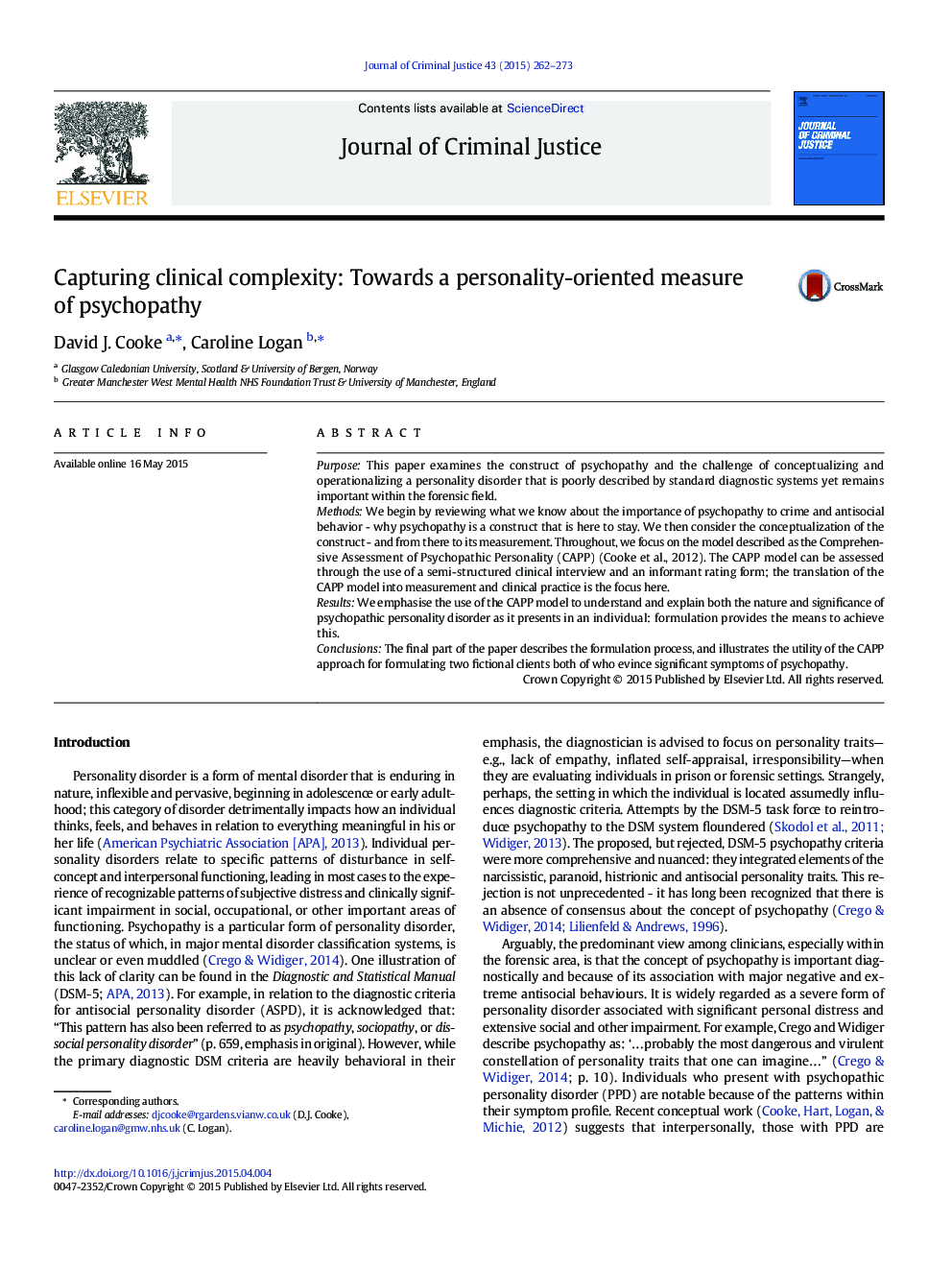| Article ID | Journal | Published Year | Pages | File Type |
|---|---|---|---|---|
| 882729 | Journal of Criminal Justice | 2015 | 12 Pages |
•Psychopathy is an enduring construct.•The CAPP model is a valid, useful, and practical way of conceptualizing psychopathy.•The CAPP model is used to understand and explain psychopathic personality disorder.•We utilize the clinical practice of formulation to achieve this understanding and explanation
PurposeThis paper examines the construct of psychopathy and the challenge of conceptualizing and operationalizing a personality disorder that is poorly described by standard diagnostic systems yet remains important within the forensic field.MethodsWe begin by reviewing what we know about the importance of psychopathy to crime and antisocial behavior - why psychopathy is a construct that is here to stay. We then consider the conceptualization of the construct - and from there to its measurement. Throughout, we focus on the model described as the Comprehensive Assessment of Psychopathic Personality (CAPP) (Cooke et al., 2012). The CAPP model can be assessed through the use of a semi-structured clinical interview and an informant rating form; the translation of the CAPP model into measurement and clinical practice is the focus here.ResultsWe emphasise the use of the CAPP model to understand and explain both the nature and significance of psychopathic personality disorder as it presents in an individual: formulation provides the means to achieve this.ConclusionsThe final part of the paper describes the formulation process, and illustrates the utility of the CAPP approach for formulating two fictional clients both of who evince significant symptoms of psychopathy.
